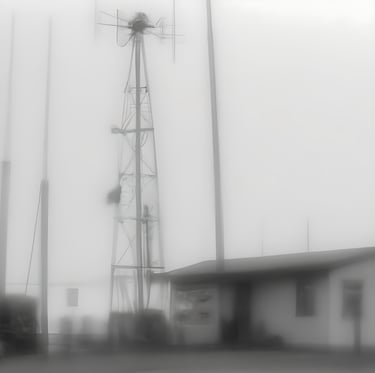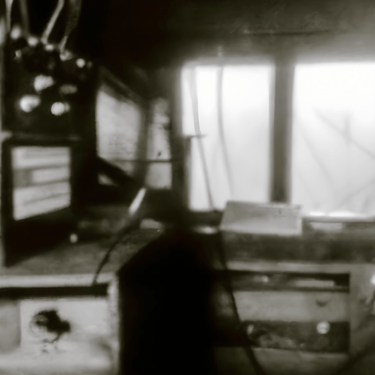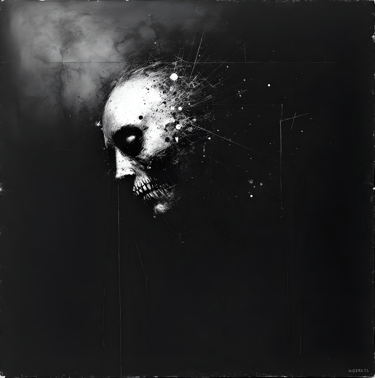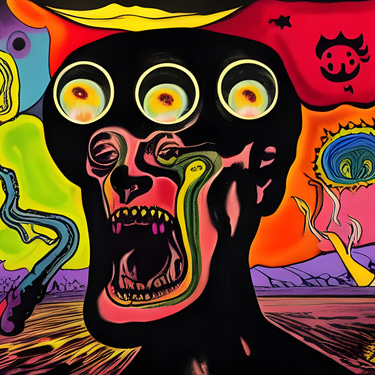Hans Franz von Stockenhausenstein
Hans Franz von Stockenhausenstein (b. May 17, 1943, Stuttgart, Germany) was a pioneering German avant-garde composer whose work, active from the mid-1960s until 2010, became known for its bold experimentation, abstract forms, and heavy influence from the political climate of the Cold War. Renowned for blending high-concept composition with unconventional soundscapes, von Stockenhausenstein also composed soundtracks for low-budget B-movies from the late 1960s through the mid-1980s, establishing himself as a key figure in both avant-garde music and cult cinema.
Born into a family with aristocratic roots, Hans Franz von Stockenhausenstein grew up in post-war Germany, a society marked by reconstruction and division. His early years were shaped by the looming presence of the Cold War, which instilled in him a fascination with the tensions and uncertainties of global politics—an influence that would later resonate deeply in his music.
He pursued formal musical studies at the Musikhochschule Stuttgart, where he was profoundly influenced by the teachings of Karlheinz Stockhausen, the legendary German composer and a pioneer of electronic music and serialism. Stockhausen’s mentorship introduced von Stockenhausenstein to the cutting-edge ideas of the post-war avant-garde, particularly in the realms of aleatoric (chance) music, electronic manipulation, and spatial music. Von Stockenhausenstein would later describe his mentor’s approach as a liberation from traditional musical forms, allowing him to explore abstract concepts and unconventional sound combinations.
In addition to Stockhausen, von Stockenhausenstein was influenced by the works of John Cage and Luciano Berio, particularly in their uses of indeterminacy, silence, and vocal experimentation. These influences contributed to the highly experimental nature of his compositions, which often challenged listeners’ expectations of what music could or should be.
Von Stockenhausenstein’s first major works emerged in the mid-1960s, when Europe was gripped by Cold War paranoia. The political divide between East and West Germany and the ever-present threat of nuclear conflict became central themes in his music. His compositions during this period, such as Splitter der Mauer ("Fragments of the Wall," 1967) and Eisiger Krieg ("Frozen War," 1969), were noted for their stark dissonance, fragmented structures, and frequent use of industrial sounds, radio frequencies, and distorted electronic feedback. His works sought to capture the fragmentation of human experience in an era of constant surveillance and looming violence.
These pieces were often more abstract than melodic, employing sound as a metaphor for disintegration and chaos. Von Stockenhausenstein’s music avoided traditional harmonic progressions, instead opting for a more freeform exploration of sound, texture, and silence. His abstract approach often divided critics but secured his reputation as a daring and forward-thinking composer.
Despite his avant-garde inclinations, von Stockenhausenstein found a surprising outlet for his talents in the world of low-budget B-movies. From the late 1960s through the mid-1980s, he composed soundtracks for various European exploitation films, ranging from horror to sci-fi and experimental art films. His score for the 1971 cult horror film Schwarze Sonne ("Black Sun") and the 1975 dystopian sci-fi film Der Letzte Mensch ("The Last Man") showcased his ability to bring his avant-garde sensibilities into mainstream pop culture.
Von Stockenhausenstein’s film scores were often as experimental as his concert works, incorporating dissonant drones, manipulated tape loops, and unconventional instrumentation like prepared pianos and oscillators. His use of minimalist motifs and jarring juxtapositions of sound enhanced the unsettling atmospheres of the films, elevating what might have been low-budget fare into artful experiences. These scores gained him a cult following among underground filmmakers and cinephiles, though they remained niche in their appeal.
In the mid-1980s, von Stockenhausenstein turned away from his work in film soundtracks and refocused his energy on experimental concert works, continuing to explore abstract ideas about time, memory, and sound itself. His later compositions, such as Traumspiegel ("Dream Mirror," 1987) and Die Geister des Himmels ("The Spirits of Heaven," 1993), were more introspective, concerned with the passage of time and the limits of human perception. These works, while less overtly political than his earlier ones, retained his trademark abstraction and dense sonic layering.
He continued composing well into the 2000s, though his output slowed as he aged. His final major work, Licht und Schatten ("Light and Shadow," 2009), was a meditation on the dualities of existence, exploring themes of life and death through soundscapes that blurred the line between noise and silence.
Hans Franz von Stockenhausenstein passed away in 2016, leaving behind a vast and eclectic body of work that ranged from the deeply abstract to the populist, albeit in his own unique way. His pioneering spirit, combined with his ability to straddle the worlds of high art and underground culture, ensured his place as one of the most enigmatic and influential composers of his time. Though often overshadowed by contemporaries like Stockhausen and Cage, von Stockenhausenstein's contributions to avant-garde music and cult cinema remain influential to this day. His bold experimentation continues to inspire modern composers and sound artists, particularly in the realms of electronic and experimental music.


Albums
Nummernstationen Vol. 1
Originally released on Plastische Realität records in August 1966
Recorded and produced by Hans Franz von Stockenhausenstein


Nummernstationen Vol. 2
Originally released on Plastische Realität records in February 1967.
Recorded and produced by Hans Franz von Stockenhausenstein


Die Geschichte des Mordes
Originally released on Plastische Realität records in July 1967
Recorded and produced by Hans Franz von Stockenhausenstein
